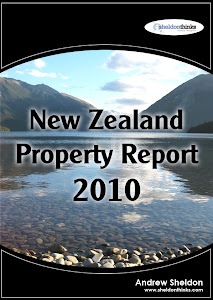1. Climate: The attractive climate provides a compelling reason for expat Filipinos and foreigners to live in the Philippines.
2. Filipinos lifestyle values make the Philippines a nice balance between business and recreation. Things move more slowly here and that appeals to a lot of people, particularly retirees.
3. The Western legal system provides people with the capacity to seek court resolutions to conflicts
4. Land title reform will give landowners confidence in the validity and security of their title in the first instance. Cross-jurisdictional administration should help reduce corruption. This will take some time, but this should not delay investors since half of the country's title is already based on the Torrens title system.
5. Strong population growth could mean a lot of new property buyers if the government is able to deliver on its reform agenda. The current rate of population growth is 2% per annum, the fastest rate in Asia.
6. English speaking environment makes the Philippines an easier place for Westerners to live and do business. Even for Koreans, Japanese and Chinese, who might have struggled with another language, they can rejoice in their English skills, as well as the large populations of Koreans and Chinese already living and doing business in the Philippines.
7. Structural adjustment of the Philippines economy and its system of administration is set to have a big impact. At this point there is little in the way of results, but gradually this factor alone could help to stamp out corruption. The core of the change is the Local Government Code of 1991. This law proves that some laws improve with age.
8. Regional proximity: The closeness of the Philippines to Asian countries is likely to lift the standing of the Philippines as a tourist destination, particularly if the growth of budget airlines continues from secondary airports. The Philippines is well positioned to benefit from a stronger Asian economy and higher rates of Asian tourism. Chinese are just starting to go abroad.
9. The low cost of living, including the ‘relatively’ low cost of property in the Philippines by global standards is a compelling reason for buying property in the Philippines.
10. End of land reform: This is speculation at this stage, but the Agrarian Land Reform Program (CARP) will likely be abandoned by Congress. Currently Congress cannot reach an agreement. CARP was implemented to give landless Filipinos greater equity or reward from their participation in the rural economy rural, after they had long been marginalised by land barons. The policy of land distribution was intended to lift food output, but its had the opposite impact. CARP has thwarted investment in both production capacity as well as farm acquisition. Higher food prices, termination of CARP, greater investment for higher yields and land zoning compliance should help to raise land demand, and thus land prices. Farm prices have hardly recovered from the drought-breaking rains after 30 years of restrained investment. One need only look at the poor land utilisation rates in the Philippines. ‘This country should be a rice basket, yet it cannot feed itself’.
11. Tighter property supply as a result of tighter controls on land rezoning by local government should increase land prices more than in the past. The devolution of public administration from national to local government units should result in higher incomes and stronger economic activity in provincial areas.
12. Generous tourist visa conditions mean that allow foreigners to reside in the country on an extended tourism visa for up to 18 months. Indonesia is far more strict.
13. Credit expansion: The third wave of a global credit expansion is set to propel Asian property and equity prices over the next decade. The gains will come slowly at first, but with asset deflation sparked by higher interest rates elsewhere its not too late to buy. The Philippines is destined to be one of the best performers.
One might well take comfort from the negatives in the Philippines because they can only get better.
14. Peace in Mindanao: Perhaps the greatest obstacle to development is the 30-year fight by the Muslims of Mindanao for independence. More moderate Muslims are negotiating an measure of autonomy with the national government, but recent negotiations have failed. It is still too early to say if the Philippines government will reach a peace accord with the Muslim free-fighters of the Muslim Islamic Liberation Front (MILF). Much of Mindanao and the Sulu Islands have been off-limits to development because of conflicts that have left this promising region as one of the poorest in the Philippines. There is the promise of extraordinary gains on property investment once these security threats are removed. But given the uncertainly, Davao looks like the safer investment option.
15. Port reforms are needed to improve the efficiency of the ports. This is a significant cost for importers and exporters alike. The cost of domestic shipping has fallen due to the development of RORO port facilities.
16. Corruption remains at a high level, and the President's family has been implicated in some corruption scandals.
17. Labour productivity is very poor in the Philippines. There are programs to address it, but they are not so significant at this point. Education standards over the last 20 years have declined.
18. Acquired assets: The Philippines has a high level of bad debts as a proportion of total loanable funds. This has been a significant drag on the local economy. A bout of inflation at the current time should actually help the banks liquidate these bad debts.
For these reasons I retain a positive opinion on the outlook for the Philippines economy, and the property market in particular. I actually did not recognise the significance of the trend until I started researching and analysing this market. The reform of local government in the Philippines is not publicised much. For more information see our latest report Buying Philippines Property. Download a copy of the first chapter here.
------------------------------------------------
Andrew Sheldon www.sheldonthinks.com






